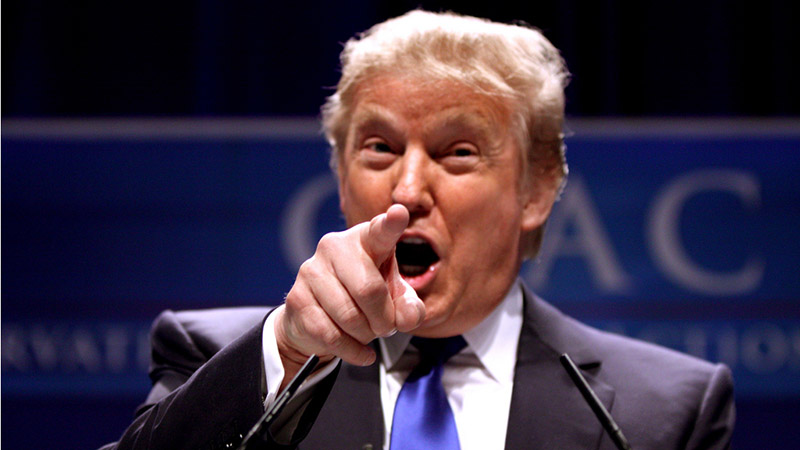Scrapping regulations that hold back fossil fuel production is top of the agenda for US president-elect Donald Trump, he revealed in a video address on Monday.
It is up there with immigration, corporate lobbying and trade rules as a target for executive action when he takes office in January.
“I will cancel job-killing restrictions on the production of American energy, including shale energy and clean coal, creating many millions of high paying jobs,” said Trump.
That is expected to mean reversing climate change policies brought in by Barack Obama’s administration.
There are a number of guidance documents Trump could revoke on day one, while the flagship Clean Power Plan would take a little longer to unpick.
Weekly briefing: Sign up for your essential climate politics update
On the foreign relations front, Trump focused on withdrawing from the Trans-Pacific Partnership, a controversial trade deal with 11 other countries.
That could be seen as a reprieve for the Paris Agreement, which he has previously threatened to “cancel”.
At follow-up climate talks in Marrakech last week, leaders urged Trump not to turn away from international efforts to tackle global warming.
Eight out of 10 Americans support cutting greenhouse gas emissions regardless of what other countries do, according to a recent poll by the Energy Policy Institute at the University of Chicago. The figure is 77% among Republicans.
Even conservative pundit Bill O’Reilly advised last week Trump should not leave the pact, if only to buy goodwill internationally. “It doesn’t really amount to much anyway. Let it go,” he said.
Yet if the US backtracks on its national contribution to the deal – a 26-28% cut in emissions from 2005 levels by 2025 – it could weaken hard-won trust in the UN process.
Some of Trump’s early appointments are causing consternation among climate advocates.
His choice for attorney general, Alabama Republican Jeff Sessions, has accused scientists of exaggerating the risks of climate change.
In a 2014 Senate debate, Sessions said consumers were “feeling the crunch” in their electricity bills from clean energy measures, while temperatures “don’t seem to be rising”. In 2015, he repeated the well-worn sceptic trope that carbon dioxide is “plant food”, ignoring the vast body of evidence that it stokes dangerous global warming.
If confirmed, Sessions will shape how environmental laws are enforced.
Meanwhile climate sceptic Myron Ebell, interviewed by Climate Home last year, is leading the transition team for the Environmental Protection Agency.
Anyone who has ever taken a science class should be horrified that Trump would let a climate denier run the EPA. https://t.co/qv2FwmY3EB pic.twitter.com/GpTZAXl1nS
— Jamie Henn (@Agent350) November 22, 2016
Environmental networks like 350, the Sierra Club and Environmental Defense Fund are preparing to fight any federal attempt to water down climate rules, while encouraging state-level action.
Steven Herz, senior attorney at the Sierra Club, told Climate Home in Marrakech: “We expect with the Trump administration that none of the federal agencies will be friendly to us, but on the flip side we’re going to encourage the single states to adopt climate friendly actions, such as renewable portfolio standards, policies to encourage investment in wind or solar.”
Trump won: It’s time for climate NGOs to stop preaching to the choir
